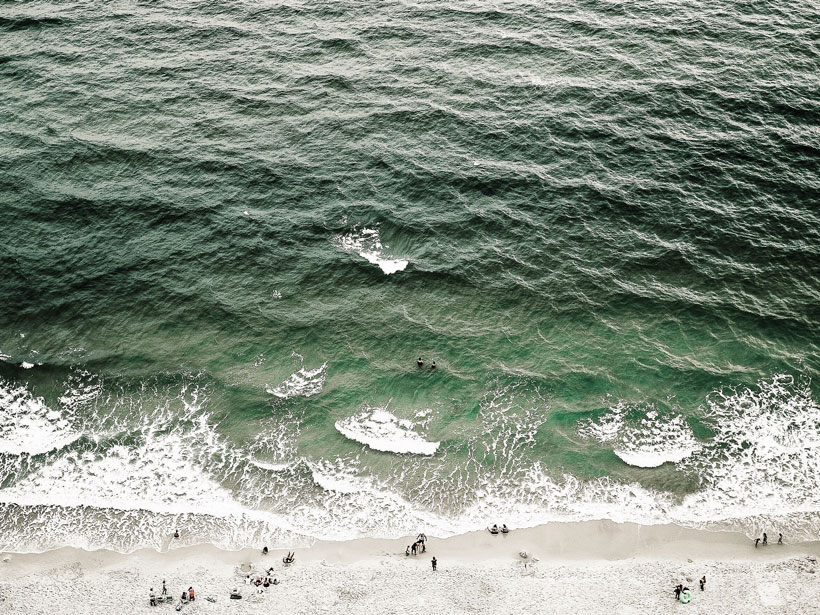With the global ocean under a barrage of assaults, including climate change, pollution, and overfishing, scientists hope that the upcoming United Nations Decade of Ocean Science for Sustainable Development will bring needed worldwide attention to these issues and encourage advances in research, monitoring, and mapping the ocean.
“We’ve had too little attention as a global society to the science of understanding the impacts of what we humans are doing to the ocean,” said Craig McLean, chief scientist and assistant administrator for Oceanic and Atmospheric Research at the National Oceanic and Atmospheric Administration.
The ocean science decade “is a wake-up call.”
The ocean science decade “is a wake-up call,” McLean said at a 9 December town hall session at the AGU Fall Meeting. The ocean science decade, which is being coordinated by the Intergovernmental Oceanographic Commission (IOC) of the United Nations Educational, Scientific and Cultural Organization, will stretch from 2021 to 2030. “We see the world and the climate changing around us. Those impacts to society are easily and clearly documented, and we need to be paying attention to that.”
McLean, who serves on the initiative’s executive planning group, added, “The best thing for us to do now is ask ourselves those questions of what do we need to solve scientifically to provide the best pathway for how society redirects itself to bring a more sustainable future.”
Ocean Decade Goals
The main motivation for the ocean decade “is to support efforts to reverse the cycle of decline in ocean health and create improved conditions for sustainable development of the ocean, seas and coasts,” according to a road map for the initiative.
Within the road map, research and development priority areas include creating a comprehensive digital atlas of the ocean; implementing a comprehensive ocean observing system; developing a quantitative understanding of ocean ecosystems and their functioning; improving an ocean-related multihazard warning system; and expanded programs in capacity building, education, and ocean literacy.
The road map outlines some societal themes and potential outcomes of the decade. These outcomes include a clean ocean with sources of pollution identified, quantified, and reduced; a healthy and resilient ocean with marine ecosystems mapped and protected and with climate change and other impacts measured and reduced; a predicted ocean with society having the capacity to better understand current and future ocean conditions; a safe ocean with human communities protected from ocean hazards; a “transparent and accessible” ocean in terms of widespread access to ocean data and technologies; and a sustainably harvested and productive ocean.
Closely Aligned U.S. Themes
At the town hall, Margaret Leinen, director of the Scripps Institution of Oceanography and vice chancellor for marine science at the University of California, San Diego, said that the White House appears to be largely in line with the ocean decade themes.
“I think it should be a welcome development for the UN decade as well, that the U.S. is in, we’re talking about it, and that the ideas are so closely aligned with the decade.”
Leinen noted that a November White House Summit on Partnerships in Ocean Science and Technology included discussions on, for instance, exploring the ocean, conserving living marine resources, protecting coastal health and safety, sustaining ocean observations, promoting food security, and leveraging big data.
“This is a really welcome development for all of us in the U.S. I think it should be a welcome development for the UN decade as well, that the U.S. is in, we’re talking about it, and that the ideas are so closely aligned with the decade,” Leinen said.
Leinen, who is a member of the decade’s executive planning group, said that a first draft of the science plan for the decade should be ready in early 2020.
Looking to the Future
At the town hall, Mykaela Barnes, a senior at the University of California, Berkeley, majoring in conservation and resource studies, said that the ocean decade also is important for youth around the world.
“This is the decade that is going to create the science we need for the ocean we want, and the ocean we need for the future we want.”
“The decade is laying this foundation for young people. Within the next 10 years, people my age and younger are going to be entering their careers [with] the potential for them to be the next decision-makers with this issue and the next scientific researchers,” she said.
Vladimir Ryabinin, executive secretary of the IOC, said that with the ocean decade, “we are trying to engage everyone into understanding that the situation is so dramatic with the environment, climate change, and health of the ocean that everyone needs to engage and change their attitudes toward action.”
“This is the decade that is going to create the science we need for the ocean we want, and the ocean we need for the future we want,” Ryabinin added.
—Randy Showstack (@RandyShowstack), Staff Writer
Citation:
Showstack, R. (2019), Ocean science decade calls attention to a wave of concerns, Eos, 100, https://doi.org/10.1029/2019EO137710. Published on 11 December 2019.
Text © 2019. AGU. CC BY-NC-ND 3.0
Except where otherwise noted, images are subject to copyright. Any reuse without express permission from the copyright owner is prohibited.
Text © 2019. AGU. CC BY-NC-ND 3.0
Except where otherwise noted, images are subject to copyright. Any reuse without express permission from the copyright owner is prohibited.

